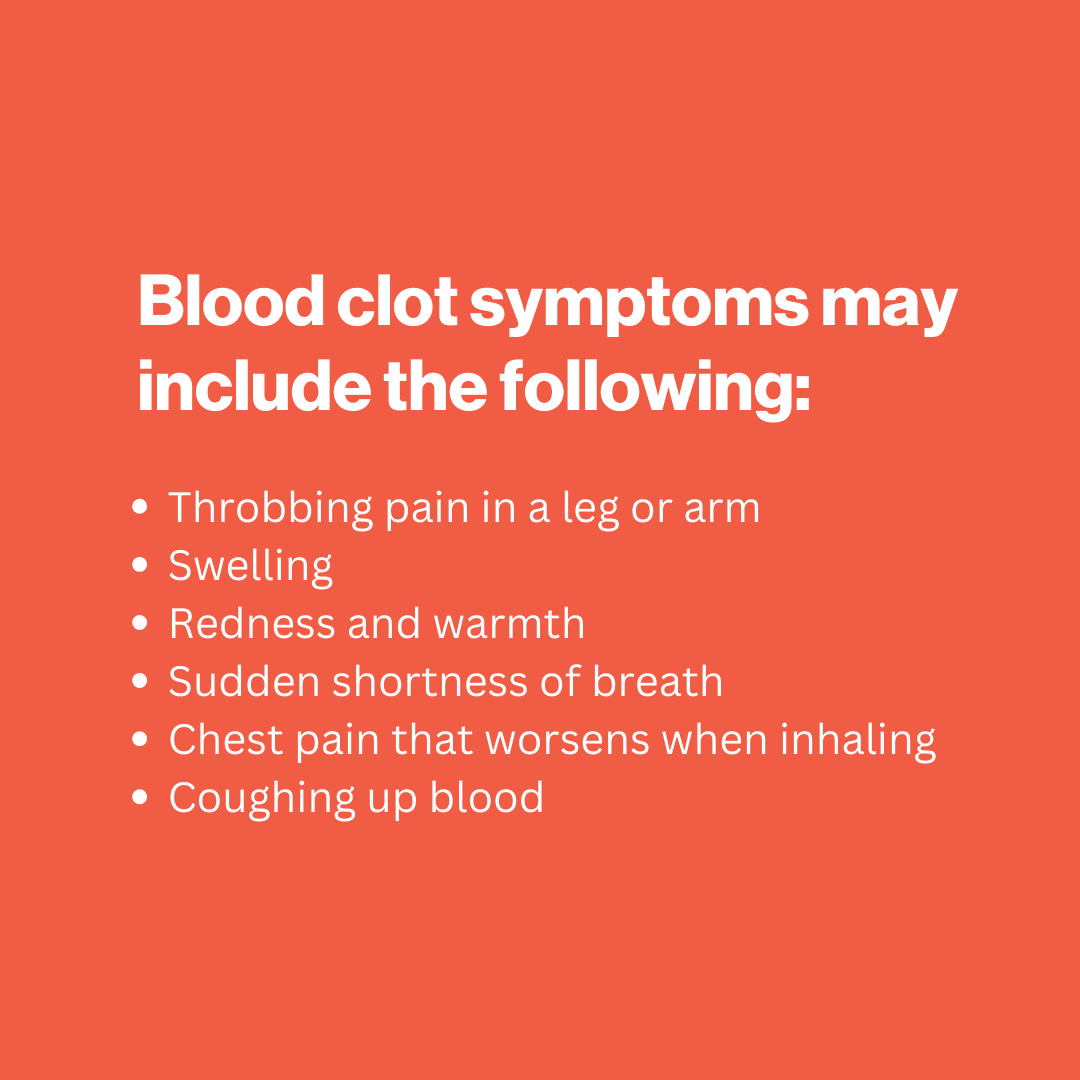Blood Clots: Symptoms and Treatment
.png)
Blood clots help stop bleeding, but when they form in arteries and veins, they may cause serious medical problems like a heart attack, deep vein thrombosis, and pulmonary embolism.
Blood Clot Symptoms
Blood clots form when blood cells and other substances congeal and harden in your blood vessels. This process is necessary to stop excessive bleeding after an injury or during surgery. But blood clots also form because of medical conditions and may become life-threatening if not treated.
Blood Clot Causes
Blood clots may form when a person is on long-term bed rest or when sitting for long periods while traveling. Blood clots often occur during and after pregnancy or in women who take birth control pills or hormone therapy.
People diagnosed with cancer, liver disease, or a kidney issue may be prone to blood clots. Certain inherited conditions also cause abnormal blood clots. Smoking exacerbates the likelihood of blood clot formation.
When blood clots block an artery or vein inside an organ, it may cause heart attack, renal vein thrombosis, DVT, stroke, and pulmonary embolism.
Diagnosing Blood Clots
Diagnosing blood clots depends on the location and type of clot. A doctor will discuss a patient’s medical history with them and perform a physical examination.
A venous ultrasound will provide a view of blood clots in the veins, while a Doppler ultrasound helps visualize vein blood flow. If a doctor suspects a pulmonary embolism, they will do a CT angiography scan. Doctors also use this scan to check for blood clots in the abdomen, pelvis, head, and neck.
A D-dimer blood test, duplex ultrasound, venography, and MRI scan will detect DVT in the body, including the legs, arms, and belly.
Blood Clot Treatment
Blood clot treatment depends on the type of clot identified during a medical examination. Dangerous blood clots typically require treatment with catheter-directed thrombolysis, which sends drugs directly to the site of the clot. Deep venous clots typically require blood thinners or an inferior vena cava filter placement.
DVT treatment focuses on preventing clots from getting bigger or breaking loose and traveling to the lungs. DVT medications include blood thinners and thrombolytics. Other options include filters and compression stockings.
.png)
Preventing Blood Clots
The best way to prevent blood clots is to stay active and exercise regularly or go on daily walks. Drink enough water to stay hydrated and lose weight if overweight. Compression socks may help improve blood flow and minimize the risk of developing a blood clot when traveling by car or plane.
Visit Premier ER & Urgent Care for Blood Clot Treatment
At Premier ER & Urgent Care you no longer have to guess where to go to get the level of care you or your loved ones need. With an ER and urgent care - under one roof, seek care confidently with Premier. Urgent Care is available from 7AM - 9PM, seven days a week. ER open 24/7.
Premier ER & Urgent Care has four convenient locations in Texas-
San Marcos - 1509 N Interstate 35 San Marcos, TX 78666
Temple - 7010 West Adams Avenue Temple, TX 76502
Waco - 221 S Jack Kultgen Expy Waco, TX 76704
Woodway - 9110 Jordan Lane Woodway, TX 76712
